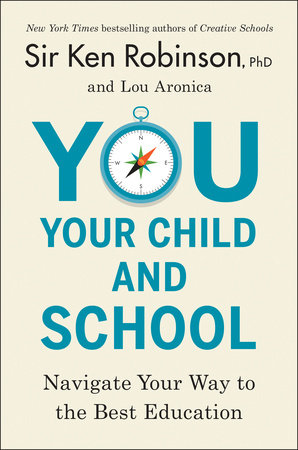 "RIP to Sir Ken Robinson, an eloquent and indefatigable defender of the role of the arts and creativity in education. His TED talks made him world-famous; his presentation "Do schools kill creativity?" remains the most popular TED talk of all time—and he wrote widely, including major books on creativity. Robinson was knighted in 2003 for his distinguished career in service to the arts.
"RIP to Sir Ken Robinson, an eloquent and indefatigable defender of the role of the arts and creativity in education. His TED talks made him world-famous; his presentation "Do schools kill creativity?" remains the most popular TED talk of all time—and he wrote widely, including major books on creativity. Robinson was knighted in 2003 for his distinguished career in service to the arts.
He was a staunch critic of standardised tests and compliance-based classrooms, and an unapologetic champion of every kind of creative endeavour—from theatre, to music, film, painting, dance, and everything in between. He died on Friday 21st August after a brief battle with cancer. His voice will be greatly missed."
[Jaweria Sethi, Edopia]
Here is a distillation from Ken Robinson's excellent and cogent publication 'Creative Schools':
" Richard Gerver (Head Teacher of the Year 2005) said: the basics I'm talking about are the biological gifts we're born with that thrust us into the world as incredible learning organisms. We are born with all the skills – all the basics – we need. Babies and very young children are incredibly intuitive, naturally creative, and deeply curious.'
People will achieve miracles if they are motivated by a driving vision and sense of purpose. That vision has to connect with them personally. I can't imagine that many children wake up in the morning wondering what they can do to raise their state's reading standards. But countless children do want to read and write and calculate for their own purposes and to sing and dance and explore and experiment. Countless teachers and parents want to support them.
There is not a simple line from vision to change. It is a constant process of action, improvisation, evaluation, and reorientation in light of experience and circumstances.
As Gandhi said, if you want to change the world, you must be the change you want to see. "
Ken's book is a cogent call for change. He's setting the ground for what and why, and how.
In 2018, commenting on the BBC this week on the government's 'high stakes testing' approach to education, Ken Robinson cogently outlined the damaging path which education is being pushed down. Do take two minutes to listen to the interview here.
You, Your Child, and School
In this book, Ken Robinson has also been considering how to inform and support parents. It is very timely in the work of spreading a broad cultural vision for enlivening education. For decades and decades now, educators have been striving to make the case for education which enables, enlivens, connects. Often we've been working and doing this amongst ourselves – which is great and necessary. But this rather leaves parents out on a limb, with varying degrees of disquiet or unhappiness which can simply feel unfathomable, or lead to decisions such as simply keeping their children away from the whole sorry mess. Rather latterly we've realised that 'our information' needs sharing and discussing broadly – that examples of lived, exciting education needs sharing, that aspirations for what education could actually be need blazoning in public spaces. Parents are the potential partners in this re-making of such a basic public good. Here's an extract from his introduction:
"Education is sometimes thought of as a preparation for what happens when your child leaves school-getting a good job or going on to higher education. There's a sense in which that's true, but childhood is not a rehearsal. Your children are living their lives now with their own feelings, thoughts, and relationships. Education has to engage with them in the here and now, just as you do as a parent. Who your children become and what they go on to do in the future has everything to do with the experiences they have in the present. If your children have a narrow education, they may not discover the talents and interests that could enrich their lives in the present and inspire their futures beyond school.
I hope [that this book] will be useful in three ways.
- The first is by looking at the sort of education your children need these days and how it relates to your roles as a parent. The world is changing so quickly now that education has to change too.
- The second is by looking at the challenges you face in helping them get that education. Some of those challenges have to do with public policies for education and some more generally with the times we live in.
- The third is by looking at your options and power as a parent to overcome these challenges."
You can read more of it here ; and you can view Ken Robinson 's own video introduction here.
We recommend it to all who are striving to envision and empower a broad vision for education and the wellbeing of the children who are and will experience it.


